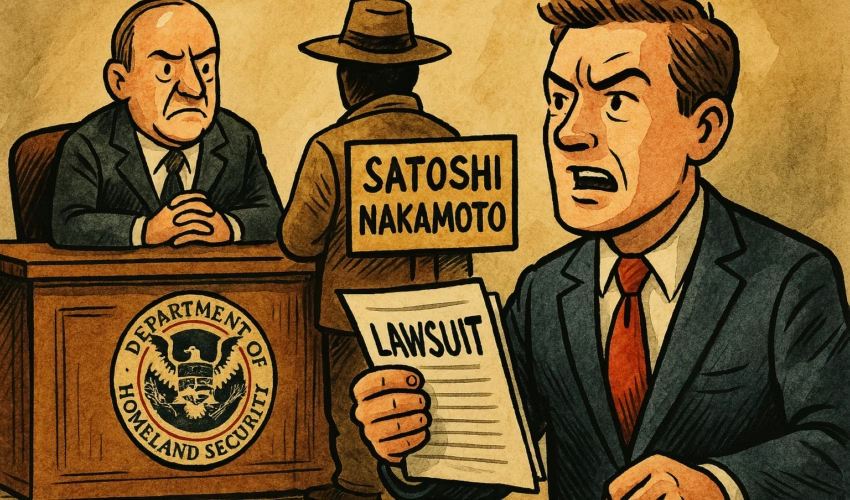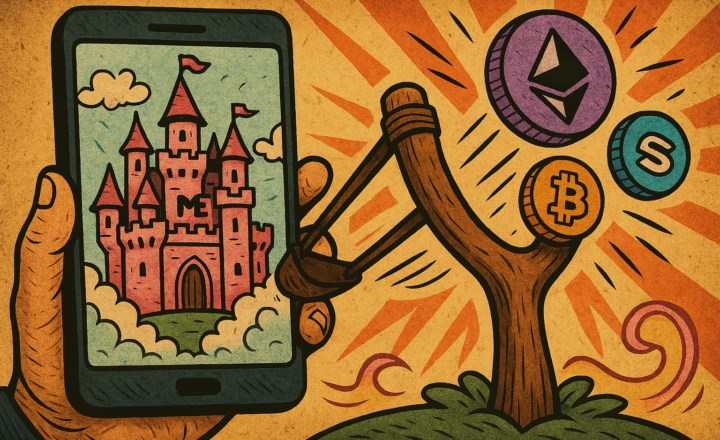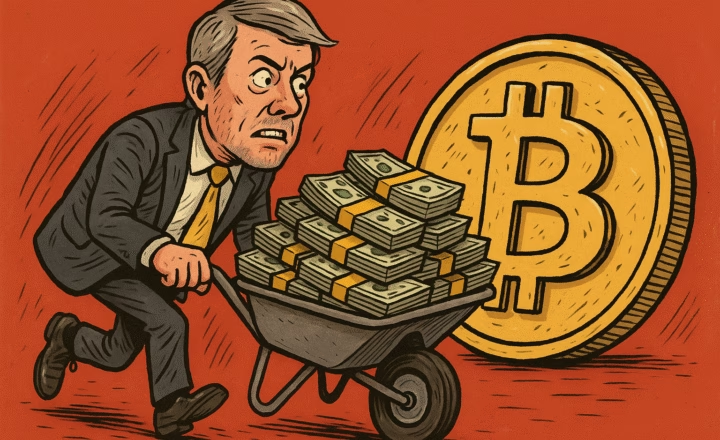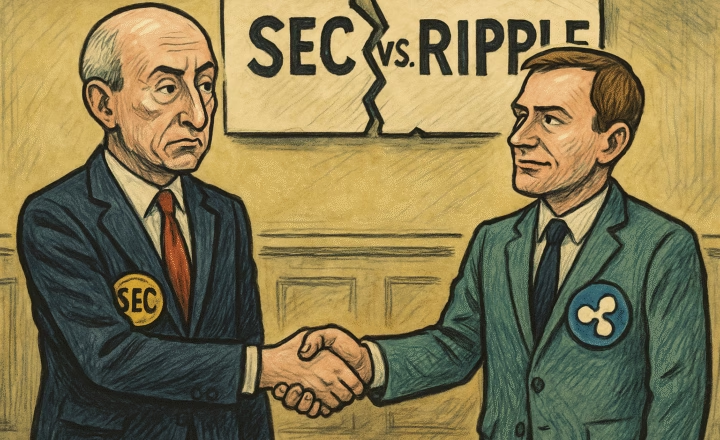FOIA Lawsuit Seeks Clarity on a 2019 Claim That DHS Met Bitcoin’s Creator
Prominent crypto attorney James Murphy, known online as MetaLawMan, has filed a Freedom of Information Act (FOIA) lawsuit against the U.S. Department of Homeland Security (DHS), demanding disclosure of documents related to a potentially historic interview with the alleged creators of Bitcoin.
The Great Mystery of the 21st Century–Who is Bitcoin Creator “Satoshi Nakamoto?”
The United States Government claims to know the answer–but isn’t talking.
So, today I sued the U.S. Government to find out exactly what it knows.
🧵👇
— MetaLawMan (@MetaLawMan) April 7, 2025
The suit, filed on April 7, stems from a statement made by DHS Special Agent Rana Saoud during the 2019 OffshoreAlert Conference, in which she claimed that agents had interviewed four individuals involved in Bitcoin’s creation. The remarks went largely unnoticed at the time but have resurfaced in light of growing public interest in Satoshi Nakamoto’s identity.
“If the interview really happened as the DHS Agent claimed, there should be documentation of the substance of that meeting,” Murphy said in a post on X.
Murphy is seeking access to emails, notes, and official documents related to the alleged meeting. His co-counsel is Brian Field, a former Assistant U.S. Attorney and FOIA litigation expert.
Murphy: Transparency Is Key to Bitcoin Adoption
In a detailed statement to media outlets, Murphy emphasized that his objective is not to expose individuals but to clarify whether a U.S. government agency holds information about Satoshi. He argues that the lack of transparency around Bitcoin’s origins remains a sticking point for mainstream adoption.
“I’m not hiring investigators or chasing conspiracy theories,” Murphy said.
“I’m using lawful transparency mechanisms to either refute or verify a public claim made by a senior DHS official.”
He also dismissed concerns that revealing Satoshi’s identity could undermine Bitcoin:
“Satoshi cannot unilaterally change the protocol. It’s open-source and governed by BIP procedures.
Revealing their identity is more likely to be a net positive for Bitcoin adoption, not a threat to decentralization.”
Divided Opinions in the Bitcoin Community
Murphy’s initiative has sparked debate within the crypto community. Some argue that unveiling Satoshi’s identity could compromise the foundational ethos of decentralization and put the individual(s) involved at personal risk. Others, like Murphy, believe that establishing provenance could help legitimize Bitcoin in the eyes of regulators, institutions, and the general public.
The case also touches on a longstanding fear: that Bitcoin may have been created or co-opted by a government agency. Murphy notes that many executives and policymakers remain skeptical of Bitcoin’s anonymous origins, even as they embrace other digital asset projects with known founders.
A History of Satoshi Speculation
Efforts to unmask Satoshi Nakamoto date back more than a decade. Suspected figures have included:
-
Nick Szabo (creator of “bit gold”)
-
Adam Back (CEO of Blockstream)
-
Hal Finney (early Bitcoin contributor, now deceased)
-
Peter Todd, who was the focus of a recent HBO documentary claiming he was Satoshi — a claim he firmly rejected.
Despite countless investigations and media exposés, no conclusive evidence has ever emerged.
Murphy acknowledges this context, stating that even if DHS mistakenly interviewed impostors or maintainers, it’s worth confirming or disproving the claim made by Agent Saoud.
Final Thoughts: Could the Government Be Holding Bitcoin’s Biggest Secret?
Murphy’s lawsuit comes at a moment when government transparency and crypto regulation are increasingly intertwined. Under President Trump’s pro-Bitcoin stance and initiatives such as the Strategic Bitcoin Reserve, public interest in the origins and governance of Bitcoin is rising.
Whether DHS ever met with Satoshi—or simply believed they did—remains to be seen. But the case raises deeper questions about who controls the narrative of Bitcoin, and whether the U.S. government knows more than it lets on.
For now, Murphy insists the request is about truth, not tabloid drama:
“Our government is required to be transparent. If dozens of government employees know something as significant as Satoshi’s identity, the public has a right to know—unless there’s a clear national security reason not to.”
In the world of open-source code and closed-door intelligence, the line between myth and fact may soon get tested in federal court.












